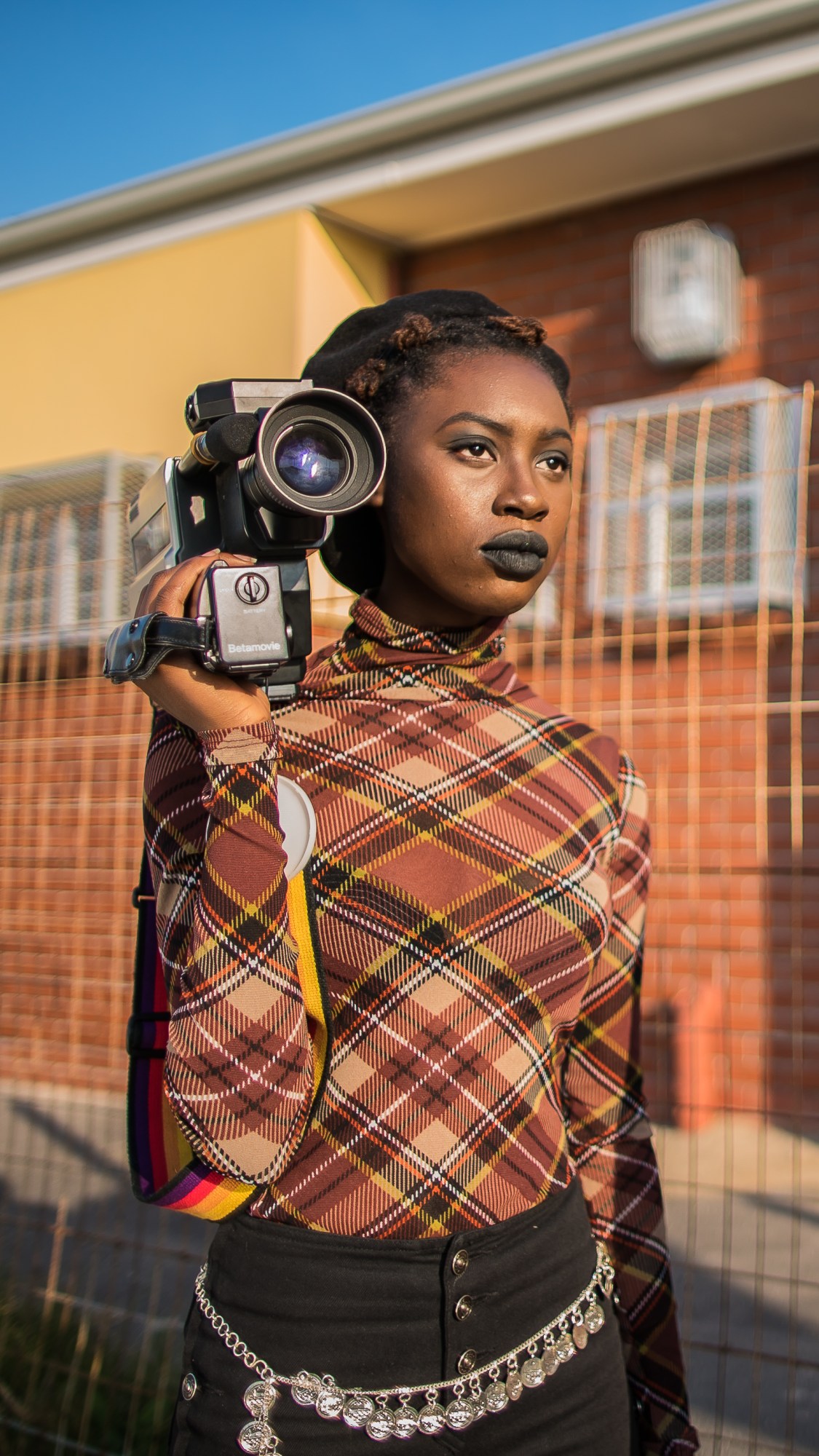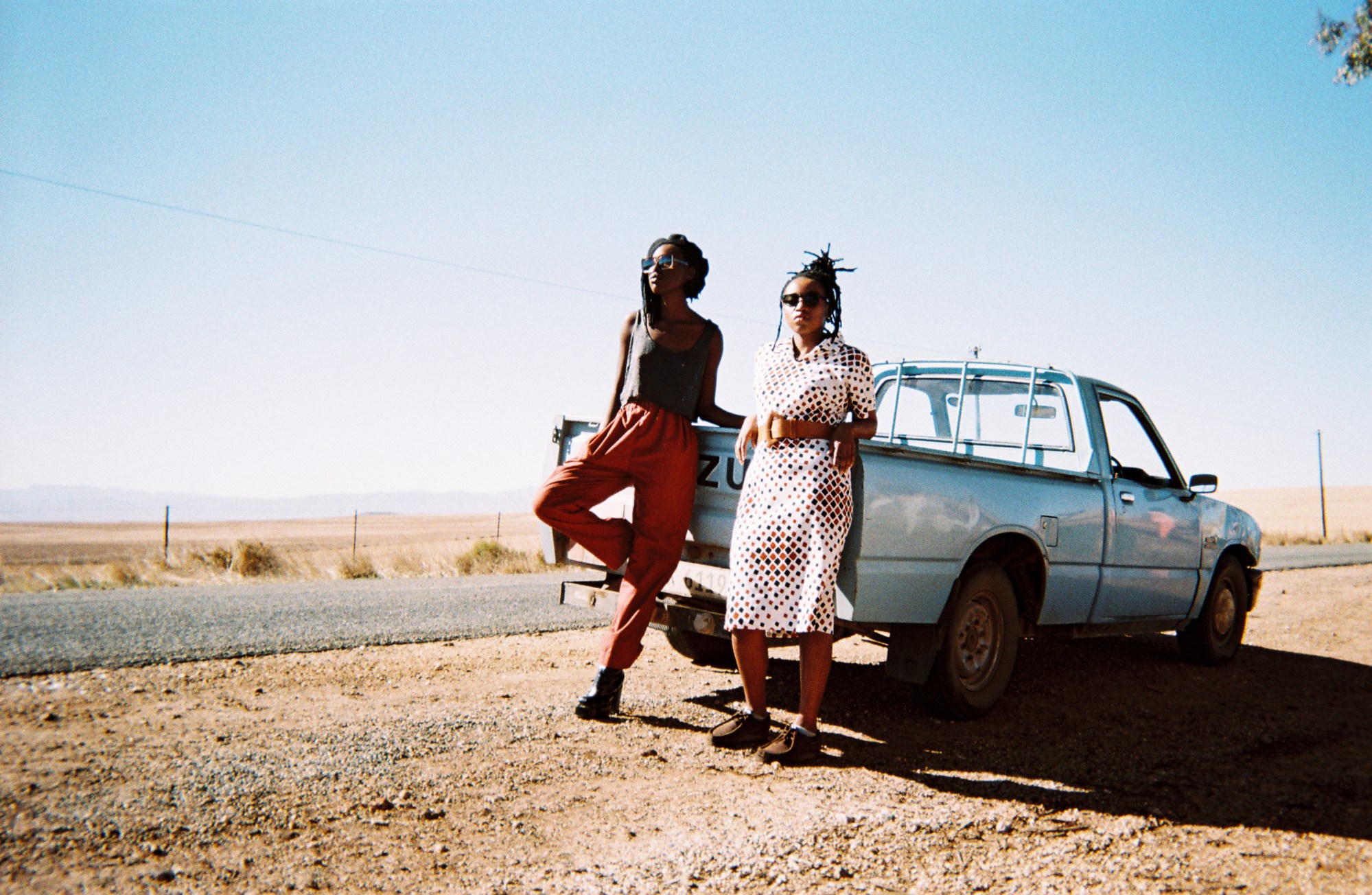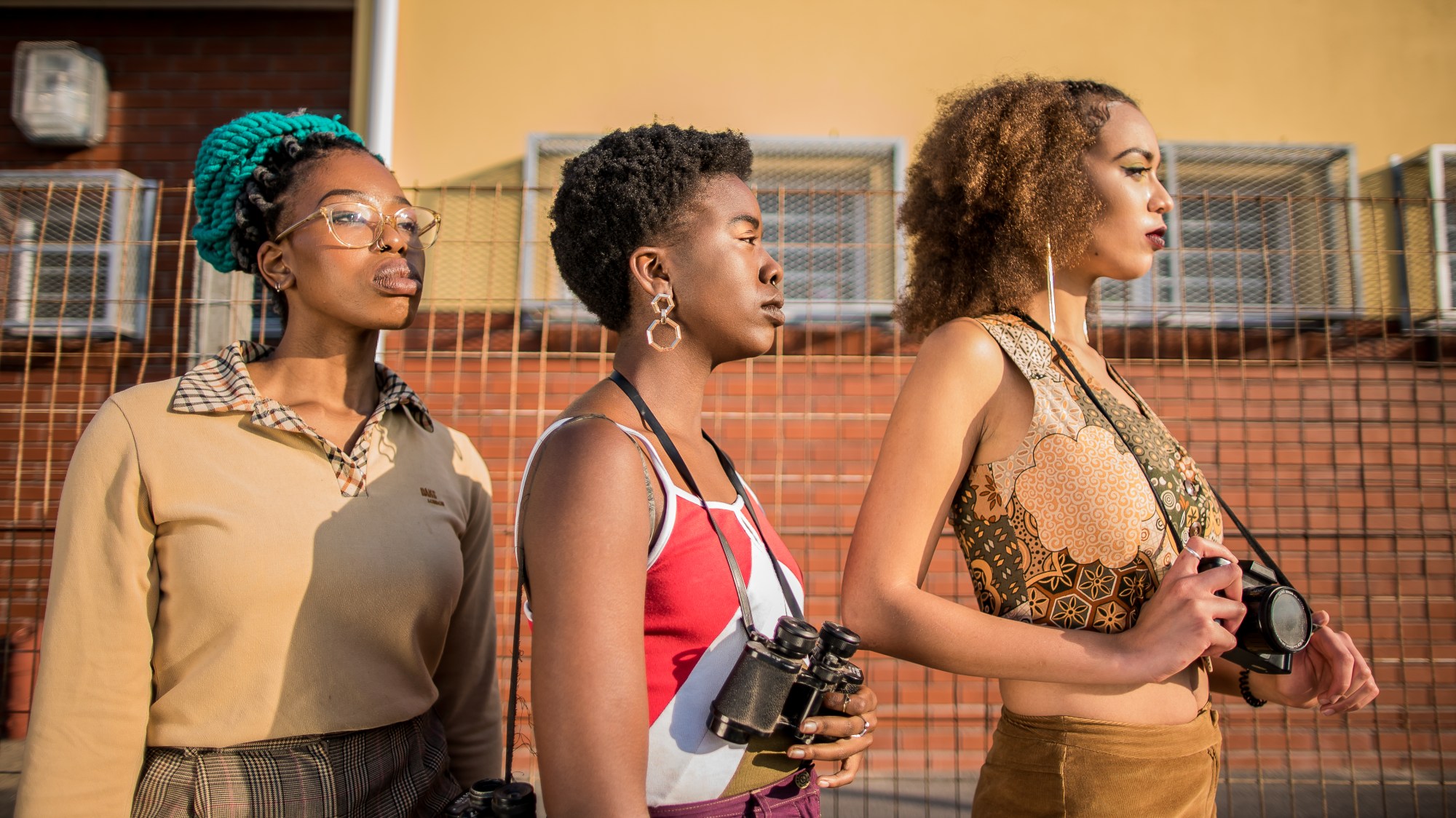“The single story creates stereotypes,” said Nigerian novelist Chimamanda Ngozi Adichie in her landmark 2009 TED Talk about narratives of the African experience. “And the problem with stereotypes is not that they are untrue, but that they are incomplete. They make one story become the only story.” For many, Adichie’s statements inspired reflection, but for Cape Town-based artist Jabu Nadia Newman they were a call to action.
In 2016, Newman, who is now 23, challenged the dominant representations of black African women in the media by releasing The Foxy Five. The scripted six-episode web series follows five African women as they grapple with concepts of intersectional feminism, gender, sexuality, and young adulthood. The show’s leading characters — Womxn We, Blaq Beauty, Unity Bond, Femme Fatale, and Prolly Plebs — each portray different social types through which The Foxy Five explores the truths and myths that contribute to popularized notions of black womanhood.
In doing so, the show defies conventional narratives. The Foxy Five allows Blaq Beauty, a “Pan Africanist honey who wants to marry Steve Biko, while having an affair with Malcolm X,” and Prolly Plebs, a “flower child” whose ideas are described as “utopian” and “unrealistic,” to coexist not in opposition, but as sisters passionately deconstructing oppressive structures in all intersections of life.
Set in present-day Cape Town, the show is a contemporary extension of the 70s blaxploitation film phenomenon that produced classics like Foxy Brown and Shaft. Newman was inspired by the era’s politically charged storylines, dedication to black activism, and ground-breaking portrayals of women as vigilantes. But she uses the period’s rawness and language to tell contemporary stories. She wrote the show’s first season while she was studying politics at the University of Cape Town and was inspired by local decolonization movements like UCT’s Fees Must Fall and Rhodes Must Fall protests.

Newman, along with many members of the show’s predominantly female crew, is a child of former anti-apartheid activists. In The Foxy Five, she captures the revival of sociopolitical activism among Cape Town’s youth in a way that’s just as provocative and stylish as the original badass foxy ladies that came before them.
What inspired you to create The Foxy Five ?
After the Fees Must Fall protests, my whole idea of what I wanted to use film for changed. Because I was majoring in politics, I was interested in dealing with difficult political concepts, but doing it in a way that people could relate to. That’s what The Foxy Five tried to be. [It was] like a research project into what the youth were discussing at that moment, particularly around intersectional feminism, which is something I hadn’t heard discussed before the protests.
How do you incorporate intersectionality into the show?
When I was figuring out how to talk about this, it was like, “How do I create the perfect black woman character that’s trying to make up for all this lost time?” And I realized that I couldn’t do that. I had to use five women that were kind of representative of one woman. The five characters represent the different aspects of intersectional feminism: race, class, gender, sex, and then finally, unity, which brings it all together.
In both your fashion film Dirty Laundry and The Foxy Five, you depict characters who take the law into their own hands, and sometimes even break the law. Why is that?
I was very inspired by Pam Grier, blaxploitation films, and seeing black women emulate these militaristic characters in these movies. I really liked how it was changing the narrative and changing what I’d seen. You don’t really see a lot of black women in action films or a lot of black women breaking the law unless it’s as a sex worker. So I wanted it to be about more of a power change and a power struggle. Also, during the protests, a lot of us felt that violence was necessary, that it was the only way of fighting the violence that we were experiencing, so I wanted to show that as a norm.
What inspired the show’s 70s blaxploitation vibe?
The Foxy Five pays homage to that time, because the cast and I were reading a lot of texts by female authors from those years: bell hooks, Gloria Steinem, Maya Angelou. It was about coupling that type of feminism with the Black Panther movement and blaxploitation films. While I was watching those movies, I was like, “America, how did you allow these films to be made?” It was so interesting to see that these movies were so revolutionary and so “fuck you.” There’s often a black woman beating up all of these corrupt white men, it’s incredible. There were also a lot of queer women in those films. I wanted to pay homage to that.
Which of the five characters do you relate to most?
I felt a lot like Unity during the making of the series because I had to bring people together. But I also felt a connection with Prolly Plebs. Episode five focused on her grappling with colored identity and it was an episode that I felt was very needed. At the time there was a lot of conversation in South Africa about what colored identity was, and whether it was a black identity or not, and whether we can call ourselves black or not. I was very interested in trying to unpack what colored identity is, and what mixed race identity is in South Africa. It’s very different from the rest of the world.

In the episode about transphobia, one of the characters struggles with how to be an ally. What do you value in an ally?
I think to be a better ally is to always acknowledge and question your privilege. You just need to listen and help in any way that is needed. Episode four was difficult because it was very much a reflection process. We needed to sit back and listen to what other people were telling us and taking ownership like, “I know we fucked up and we need to start working together to change that.”
In which ways do you incorporate the languages and ideals of South Africa’s different tribes?
The scripts are mostly written in English but the actors choose when they feel like using their own languages. Luckily, I’m working with a cast that is very diverse: some are Xhosa, some are Zulu, some are from Zimbabwe. We also try to use a lot of South African colloquialisms, to keep that honesty. It was very important that the show was made for South Africans first, and for black women in South Africa first. The international audience came a lot later, and it was dope that people in other countries could also relate to the show. But the series was very much for us first.
In your work you consistently document South Africa’s huge decolonization movement, which is attempting to rid the country of the residual effects of Western colonial influence and structures. Why is this so important?
It’s shaken the establishment because it’s finally putting value on African knowledge, African identity, and African experience. It’s finally not taking Western ideals or Western traditions as the go-to. It’s shifting the power imbalance and saying, actually, “we don’t want to learn from only white academics and white lecturers. We want to learn from black academics and black lecturers, because they are speaking to what we are experiencing personally.”
It’s important because the decolonization of South Africa hasn’t even started yet. In the rest of Africa there have been wars and movements that have completely changed those [countries’] situations. In South Africa it was like, “Okay, the power has been relinquished to the ANC [African National Congress] and Nelson Mandela,” but that was not true. It was on a surface level. We had a black president but the wealth, the land, the education and all of these institutions were never passed to black academics and black people who deserve that, they remained in white people’s hands.
What are the benefits of working as a South African woman in a creative field?
Right now, the benefit is that there aren’t a lot of us. Which can also be a downside. There can be a lot of tokenism. It’s also interesting that the film industry is now realizing it needs to listen to black woman more. Now is the perfect time for black women to be at the forefront of the industry and telling these stories. So that’s the benefit. I feel lucky to be telling this story right now. There are a lot of women who are also trying to tell their stories but who don’t have the infrastructure or the capital to do that.
Season 2 of The Foxy Five is currently in pre-production. Watch Season 1 on YouTube .
